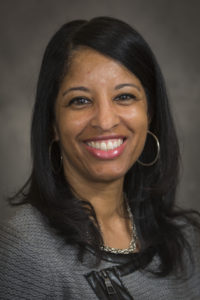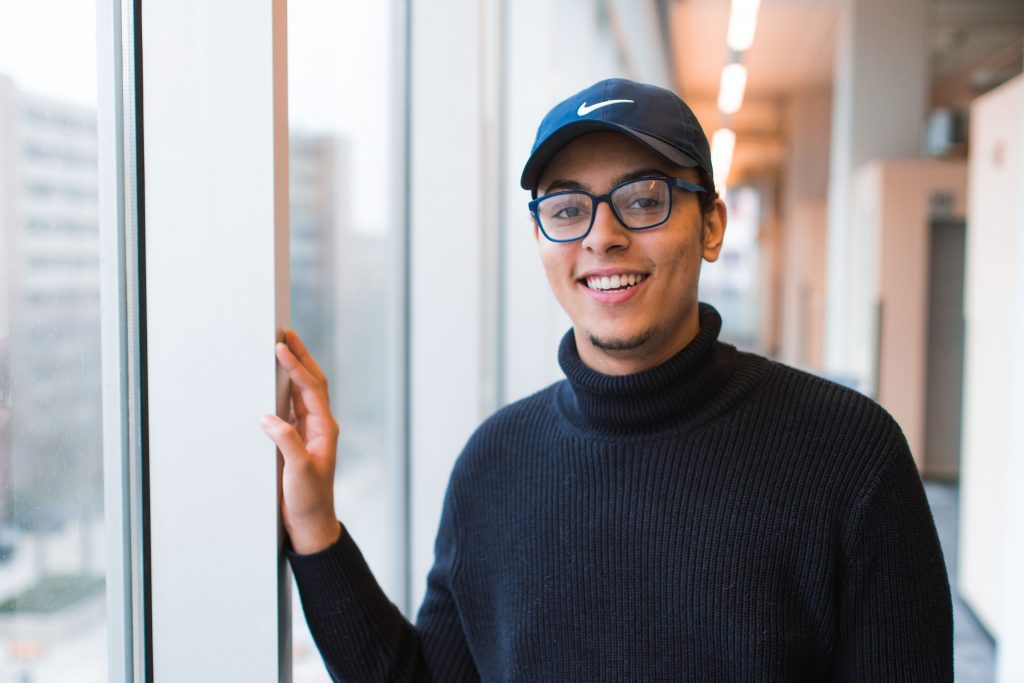Being the first person in one’s family to attend college is a badge of honor, yet many first-generation college students may find themselves balancing the pride of pursuing higher education with a unique set of financial, social, or academic challenges that no one in their immediate family has experienced.
A first-generation student is one who is the first in their immediate family to attend or graduate from a four-year institution. Seventeen percent of UW–Madison’s class of 2020 self-identified as first-generation students. In 2016, 18 percent of undergraduates were first-generation students.
So what makes the experience of first-generation students different from their peers with college-educated parents?

Claudia Mosley, director of Center for Educational Opportunity (CeO) which works with first-generation students, says first-generation students are “truly trailblazers who navigate the college experience with no previous coaching or idea of what to expect. First generation college students do not have a legacy of higher education in their family. That means that they most likely do not receive the guidance, tips and advice from family members that other students may receive early in their educational journey.”
Unique strengths and perspectives
The Mental Health Services unit within UHS has providers who focus on working with first-generation students. Every student who initiates mental health services at UHS is asked—among a series of questions—if they are a first-generation student in an effort to best address individual needs. Of the clients that psychologist Brian Drozd met with during the fall 2017 semester, approximately one-third were first-generation students. Drozd says first-generation students bring strengths to their college experience including flexibility and self-motivation.
Mosley concurs. “They also bring unique perspectives to the intellectual discourse in their classes and majors. Their intersecting identities and world views add to the richness of the Wisconsin Experience.”
However, these strengths can sometimes be offset if a student questions their place amongst their peers on campus.
“There’s achievement guilt of ‘Why am I first?’ or feelings of imposter syndrome,” says Drozd. “This may lead to feelings of increased stress, anxiety, loneliness, and isolation among this student community.”
Mosley says that beginning as soon as the admissions process, a limited awareness of the campus landscape—such as academic offerings, student services, and leadership opportunities—may impact a student’s ability to fully engage in the college experience.
Devon Betts is a second-year graduate student enrolled in the Afro-American Studies program. He’s a first-generation college student who transferred to UW-Madison as an undergraduate. Betts noticed a difference in the shared experiences of himself and his friends whose parents attended college, especially in their knowledge of complex processes such as financial aid.
“When I first came to UW-Madison, I was naïve and didn’t think there would be so many challenges. I assumed that since I got in, we were all on a level playing field. I felt that people who had parents go to college were more aware of resources available to students than I was, like there were secrets about navigating the university that they knew, things that took me years to figure out through trial and error.”

Two separate words
Drozd encourages students without familial or parental college experience to look for role models and sources of information within their campus community such professors, instructors, work supervisors, advisors, or even fellow students who may have more experience with college and professional life.
Attending college has historically been viewed as a vehicle to reduce health and socioeconomic disparities but Drozd says first-generation students can often feel stuck between two worlds.
“A student’s family may feel as though they’re speaking—figuratively—a different language while classmates, peers, and professors may not understand important family dynamics of being a first-generation student. Family members may say ‘My child is going to be the first doctor in the family’ and the family member may not fully understand what that entails.”
Betts experienced this tug during his undergraduate years. “I tried to find the balance of not sounding elitist or condescending when talking to family members. As an undergrad, it felt like two separate worlds. Being in graduate school, I’m learning how to merge the two worlds because some of my research is about communities from which I come. I understand that I’m privileged to have access to certain types of information that my family members don’t.”
It took Betts the duration of his undergraduate career to get comfortable with his identity as a college student within the context of his family unit.
“In the beginning, I sometimes felt that I was going to college not just for me but for my entire family. And that’s a huge burden. For the longest time, I felt that I had to take courses and be successful because of the sacrifices that my family had made. Although my parents made many sacrifices for me to be here, I’m ultimately the one who in class and I have to do the things that are right for me. It took me a long time to figure that out.”
Forming connections
In addition to their academic and social commitments, Drozd says many first-generation students work full- or part-time jobs during the school year. The state’s median income for a family with one or both parents as college graduates is $99,000 per year compared to the family of a first-gen college student at $38,000 per year.
Zaakir Abdul-Wahid is a fourth-year marketing and psychology major from Milwaukee who serves as the outreach coordinator for the Working Class Student Union’s (WCSU). He says the first-generation students he meets through the WCSU may have a financial gap between what their families can contribute, scholarships and financial aid, and the overall cost of attendance that requires that they work.
“School is not your first job, your job is your first job. School can sometimes fall to the wayside and your GPA can be affected,” says Abdul-Wahid.
He adds that there’s an assumption that parents and family members are available to help with confusing, complicated processes such as financial aid or paying bills.
Abdul-Wahid said the demand to navigate complex campus systems on your own can lead to further isolation on campus.

“There can be a general assumption that first-generation students got here with the support—and sustained financial support of their families—and that’s not always the case. Students are told ‘Ask your parents for help.’ For many first-generation students, there are financial and language barriers for their parents and family members.”
“For me, and for many first generation students, we’re very independent. Actively asking for help has been challenging because we’re used to figuring things out for ourselves. It can be daunting to even determine who to ask for help.”
Drozd says first-generation students are more likely to live off campus and commute, leaving less opportunity to form connections that help foster a sense of belonging and community. As a result, “first-generation students may feel lonelier or more disconnected from their peers and their campus community.
“Forming campus connections is a make-or-break. It creates a gap when you’re not able to do that,” says Abdul-Wahid.
“It’s important for students feel connected and supported in their endeavors so they don’t feel alone, and feel like they have others to talk to who want them to do well and can help them negotiate college life,” adds Drozd.”
Resources for students
Mosley says despite their high intellectual capacity “many [first generation] students may feel they’re not cut out for UW-Madison and don’t belong here.”
This rings true for Betts. “I always got great grades but my grades dropped when I got to UW-Madison and was in a different learning environment. I didn’t have my parents telling me that maybe I was in the wrong major or I didn’t know that I could go to Career Services. That’s when I started to reach out to people to try to make a change.”
Mosley says advising is an important tool used at the CEO and “Students are assigned an advisor and receive advising services through degree completion. Our approach is to reach out to students and ensure that they connect with us consistently each semester. We provide a small close-knit community within this large campus community.”

UHS provides individual counseling, group counseling and workshops, wellness services, and psychiatric services.
Drozd says many students benefit from group counseling because it helps to normalize their experience. “They are not alone in their difficulties, and that other students have had similar thoughts, feelings, and experiences.” He adds that first-year students often find adjusting to the different demands of college life very challenging, as well as lonely, and counselors, as well as peers in the group counseling setting can be helpful support of a counselor or peers in a group can be helpful.”
If you would like to make an appointment to meet with a counselor or explore group counseling, schedule an access appointment.
Additional campus resources are available for first-generation students and their families including: